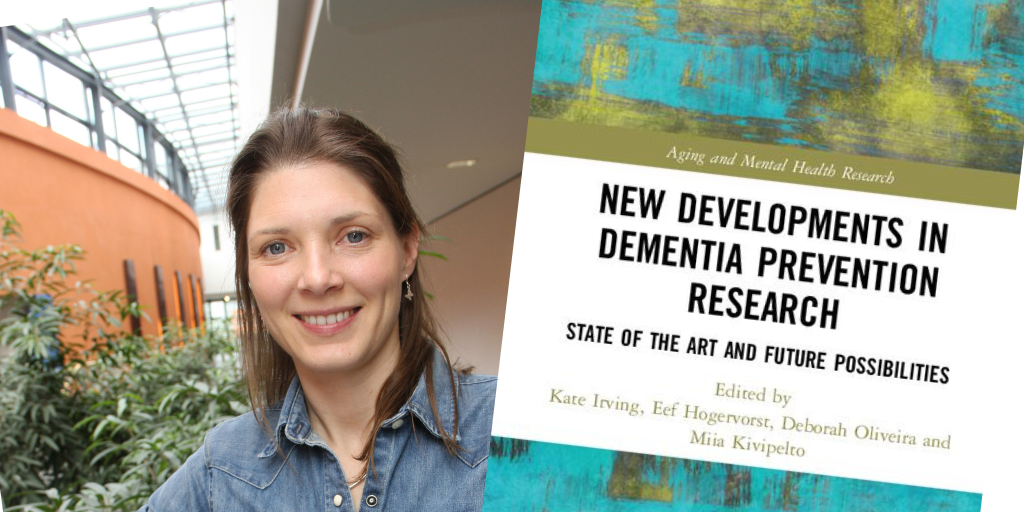

Some of the most common risk factors for dementia relate to lifestyle choices
- Small changes can reduce the risk, highlights global expert
Some of the most common risk factors surrounding dementia are related to lifestyle habits, yet many people remain unaware that simple changes in their daily lives can reduce the risk of developing dementia, according to a leading dementia expert at Dublin City University.
Factors affecting the general health of people, such as obesity, lack of exercise, smoking, cholesterol and high blood pressure are highlighted as lifestyle elements that play a part in dementia.
“At least one-third of dementia risk is down to lifestyle,” says Professor Kate Irving, DCU School of Nursing and Human Sciences and joint editor of the recently-published New Developments in Dementia Prevention Research, a collection of essays on the subject of dementia with contributions from world-leading experts in applied science, medicine, psychology, health promotion, health economics, social policy and primary care which compares and contrasts scientific and policy developments in global dementia research.
Prof. Irving highlights that the “fear and dread” that a dementia diagnosis instils in people has contributed to it being excluded from government-funded chronic disease prevention strategies, including the flagship Healthy Ireland programme.
While there is a move towards addressing dementia, when it is diagnosed, it has not been public health policy to include “dementia risk reduction measures” in health promotion strategies alongside other chronic diseases.
Prof. Irving commented: “People believe dementia is arbitrary and there is nothing you can do about it. We need to change that mindset; it is something we have some control over and we need to take some of this fear away. Fear is closing off the opportunities to have a conversation about this.”
Prof Irving acknowledges that ageing remains the major cause and genetic factors do play some part, but that ageing and genetics aside, a “shroud of silence” surrounding the disease is preventing people from opening up and having a realistic conversation about the topic.
She also highlights that investment in population health approaches is quite low in comparison to the investment in drug development; yet there are positive signs surrounding population health research for example, large-scale longitudinal studies.
KEY FINDINGS
- The importance of blood pressure and awareness surrounding one’s own measurements are key. If every individual were to keep a regular check on their own blood pressure, it would play a significant part in later life.
- While there is unlikely to be a significant treatment for dementia before 2025, “risk reduction measures” - mirroring the public health campaign against smoking - need to be stepped up and properly funded.
- In cancer research, there are up to 4,000 drugs in development - in dementia research, there are less than 90 in development in 2018.
- One of the emerging risk factors that requires further study is sleep. Contributions from the Yue & Yaffe studies of dementia in those who don’t conform to a regular sleep pattern of seven to nine hours sleep per night found that; Six studies concluded that long sleepers (more than eight hours) were twice as likely to develop cognitive decline or AD and short sleepers (less than seven per day) were 63 per cent more likely than normal sleepers.
- Researchers believe that with proper public health campaigns and well-funded research, it could be possible to “squeeze” the incidence of dementia “into a much shorter period at the end of life” in the future.
- The book concludes that communities, households and individuals need to be informed what aspects of their lifestyle they need to change “in order to address behaviours that we know confer risk”.
New Developments in Dementia Prevention Research - State of the Art and Future Possibilities, is now available here.
